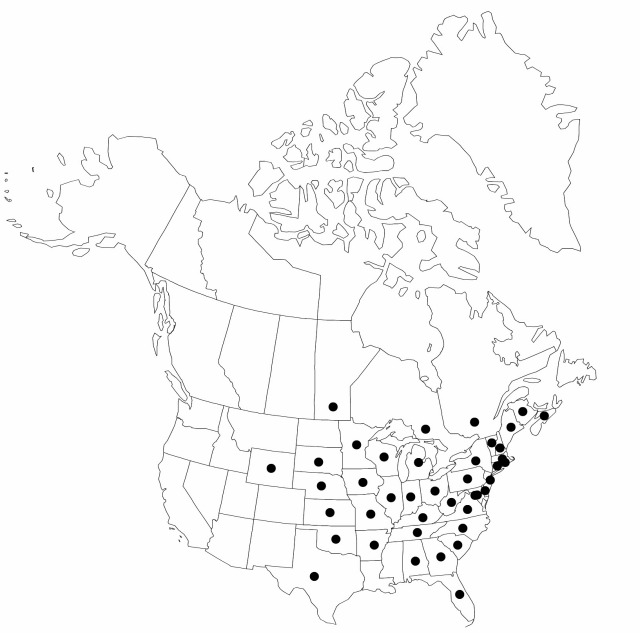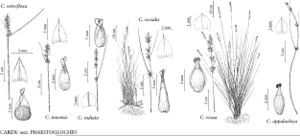Difference between revisions of "Carex rosea"
Sp. Pl. 4(1): 237. 1805.
FNA>Volume Importer |
FNA>Volume Importer |
||
| Line 51: | Line 51: | ||
|publication year=1805 | |publication year=1805 | ||
|special status= | |special status= | ||
| − | |source xml=https://jpend@bitbucket.org/aafc-mbb/fna-data-curation.git/src/ | + | |source xml=https://jpend@bitbucket.org/aafc-mbb/fna-data-curation.git/src/f6b125a955440c0872999024f038d74684f65921/coarse_grained_fna_xml/V23/V23_491.xml |
|genus=Carex | |genus=Carex | ||
|section=Carex sect. Phaestoglochin | |section=Carex sect. Phaestoglochin | ||
Revision as of 19:08, 24 September 2019
Plants without conspicuous rhizomes. Culms 20–90 cm, (1.5–) 1.6–2.2 mm wide basally, 0.5–0.9 mm wide distally. Leaves: sheaths tight, green, fronts hyaline; ligules less than 2 mm, wider than long; widest leaf blades 1.8–2.6 mm wide. Inflorescences 2–7 cm × 5–8 mm; proximal internodes more than 2 times as long as proximal spikes; proximal bracts to 6(–10) cm; spikes with 7–14 spreading perigynia; spikes 4–8. Pistillate scales hyaline with green midvein, ovate to circular-ovate, 1.4–2.1 × 1–1.8 mm, body 1/2 length of perigynium, apex obtuse, acute, or awned. Anthers 0.8–1.3 mm. Perigynia green, faces not veined, 2.6–4(–4.2) × 1.1–1.8 mm, base of body spongy, thickened, longitudinally striate adaxially, spongy region 0.8–1.3 mm, margins serrulate distally; beak 0.6–1.2 mm, apical teeth 0.1–0.5 mm. Stigmas coiled or twisted, 0.07–0.1 mm wide. Achenes ovate to obovate, 1.6–2.2 × 1.1–1.6 mm. 2n = 52.
Phenology: Fruiting mid–late spring.
Habitat: Dry to mesic deciduous or mixed forests
Elevation: 50–1000 m
Distribution

Man., N.B., N.S., Ont., Que., Ala., Ark., Conn., Del., D.C., Fla., Ga., Ill., Ind., Iowa, Kans., Ky., Maine, Md., Mass., Mich., Minn., Mo., Nebr., N.H., N.J., N.Y., N.C., Ohio, Okla., Pa., R.I., S.C., S.Dak., Tenn., Tex., Vt., Va., W.Va., Wis., Wyo.
Discussion
Kans., Ky., Maine, Md., Mass., Mich., Minn., Mo., Nebr., N.H., N.J., N.Y., N.C., Ohio, Okla., Pa., R.I., S.C., S.Dak., Tenn., Tex., Vt., Va., W.Va., Wis., Wyo.
Selected References
None.
